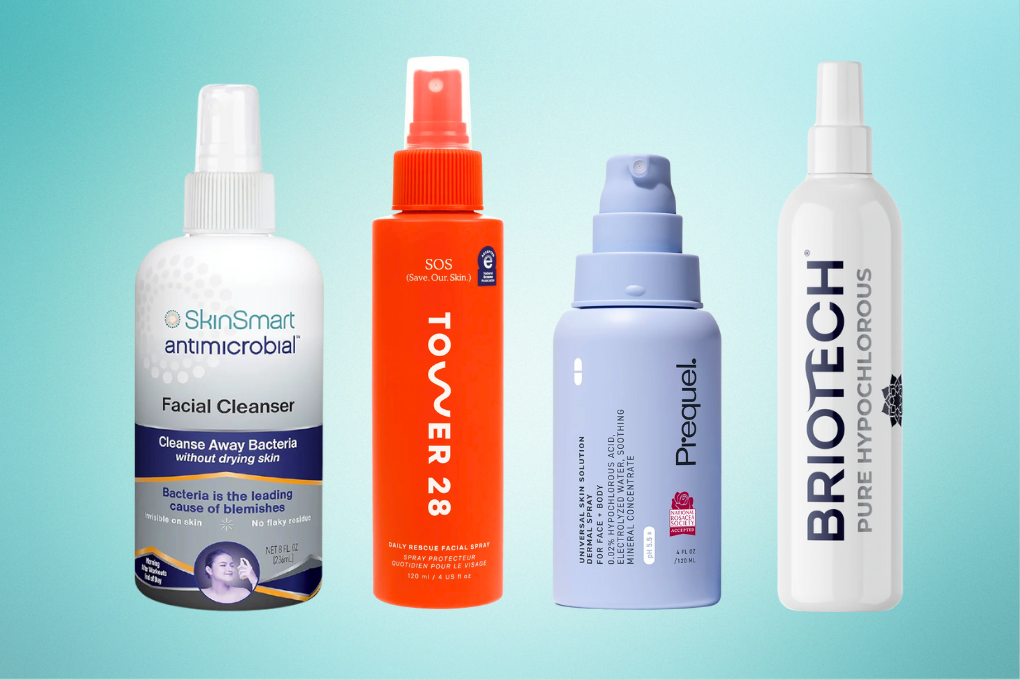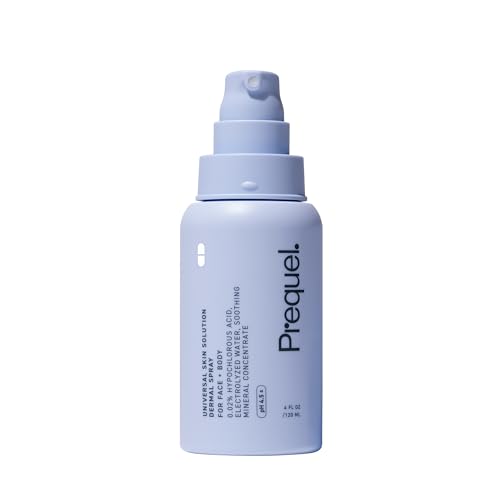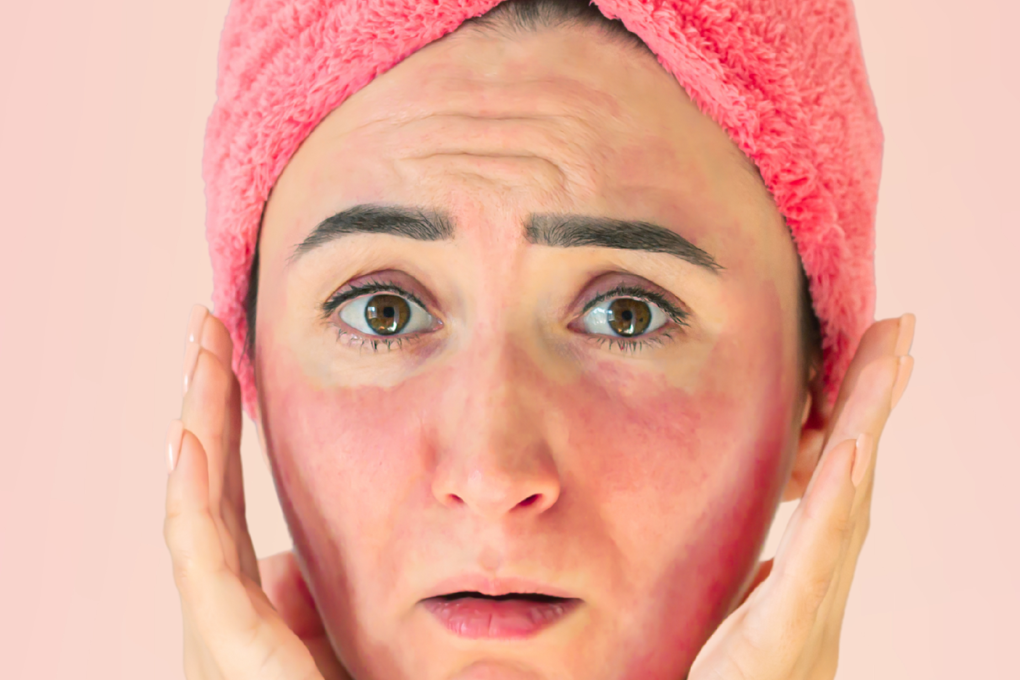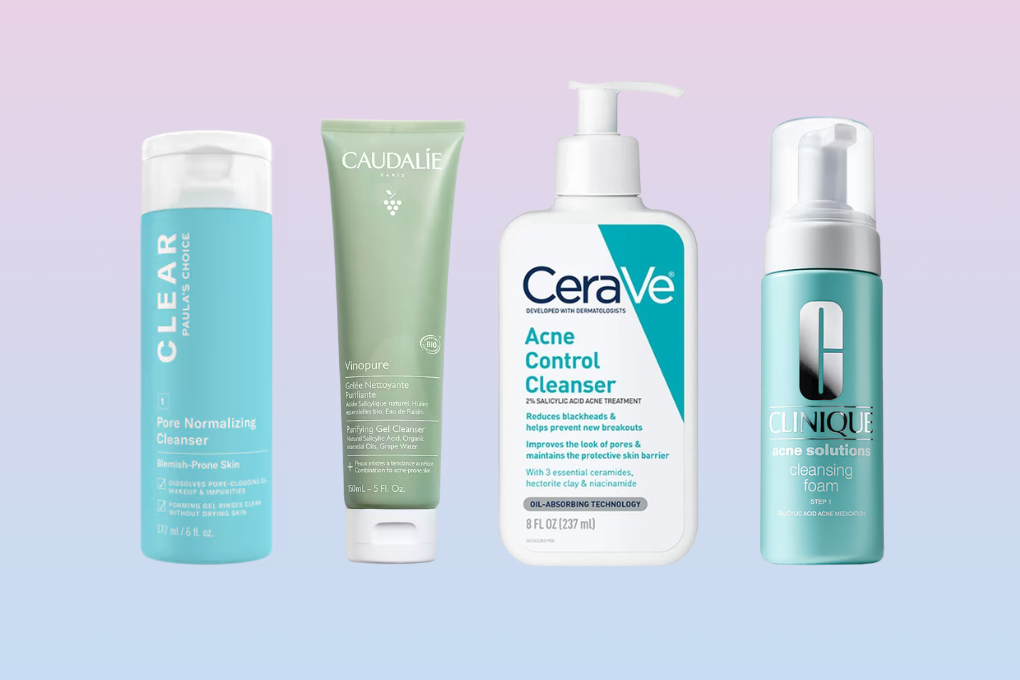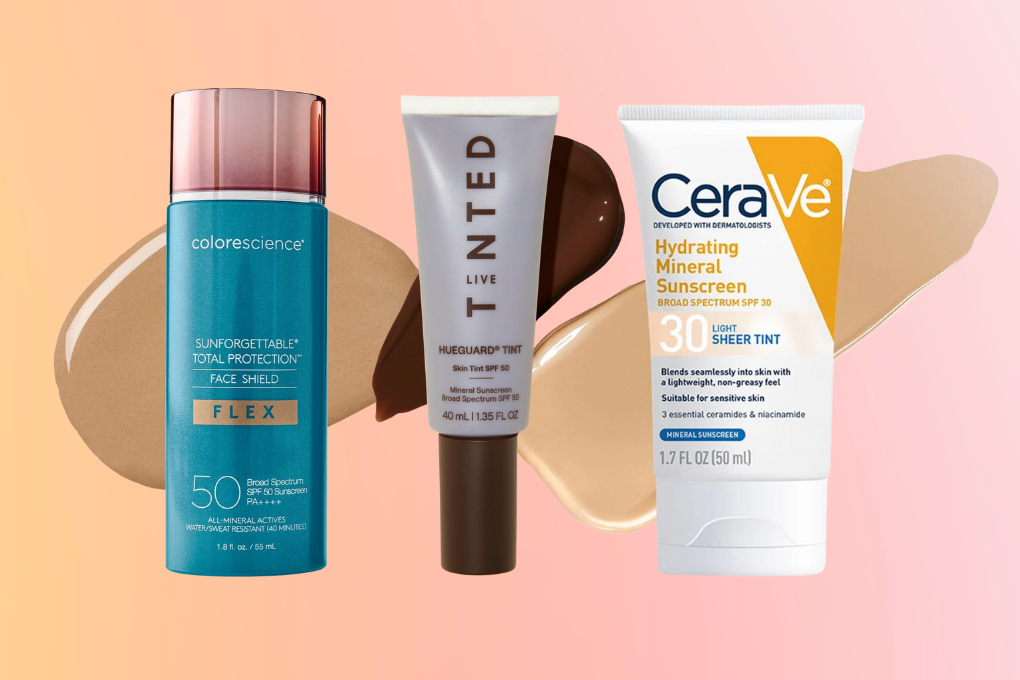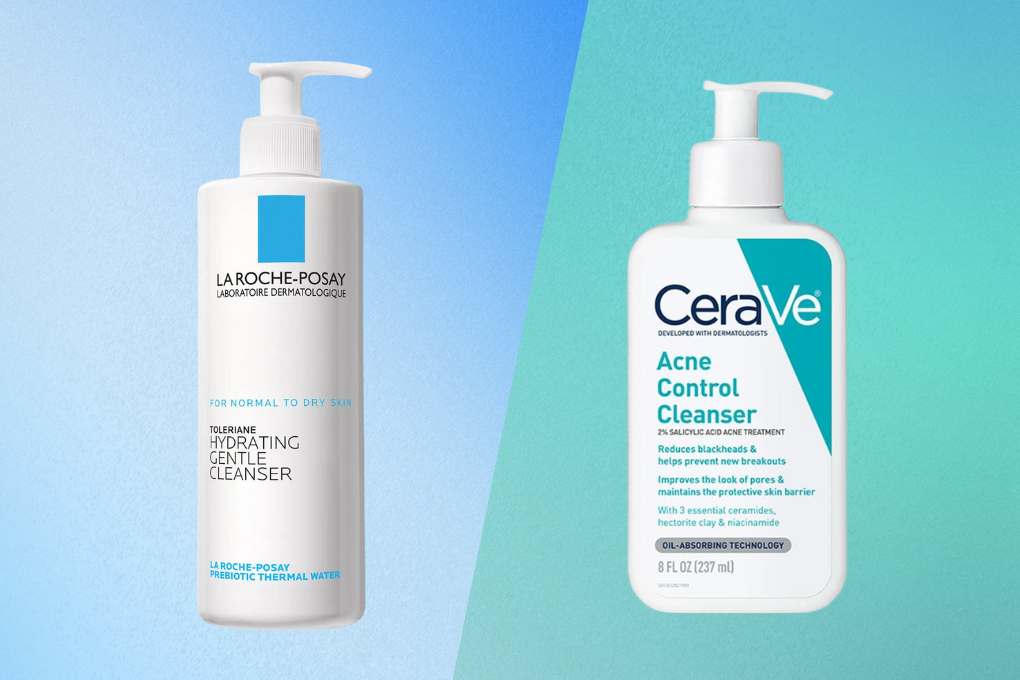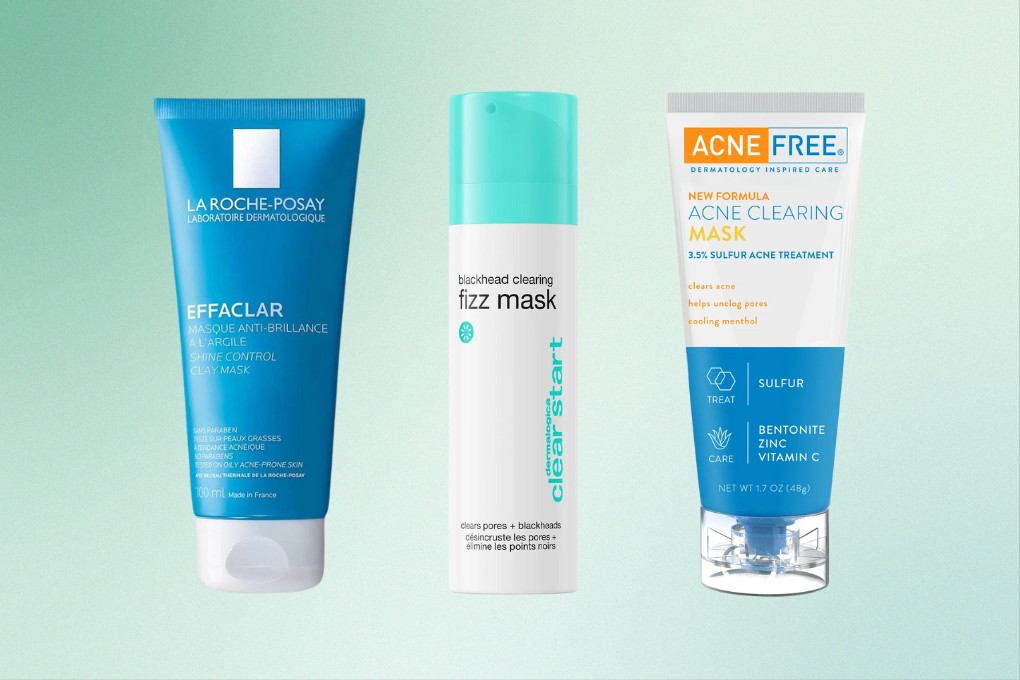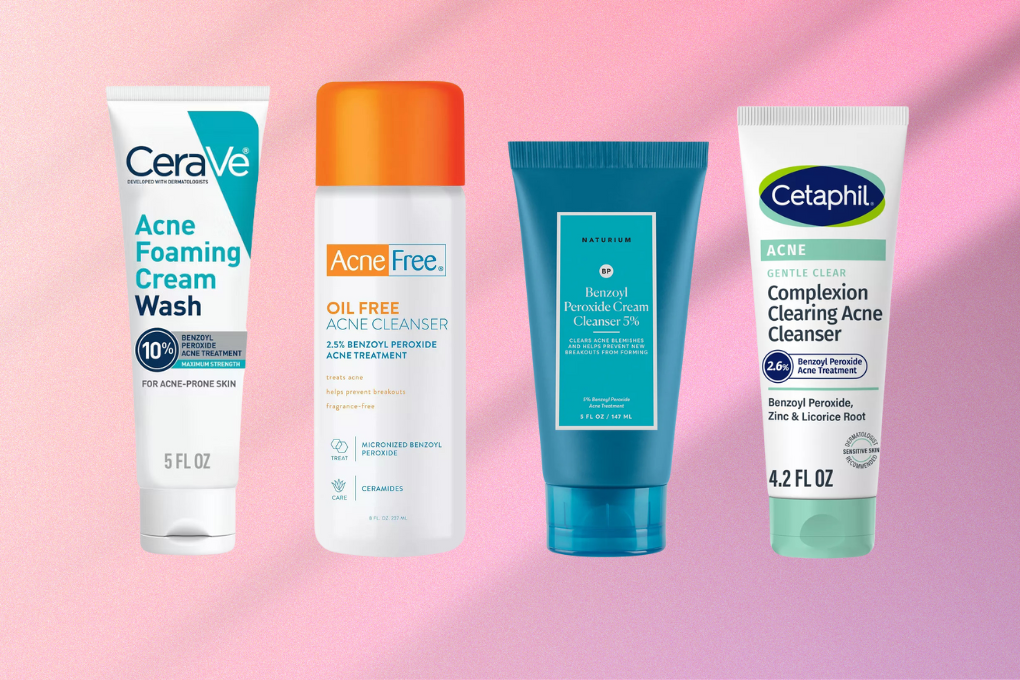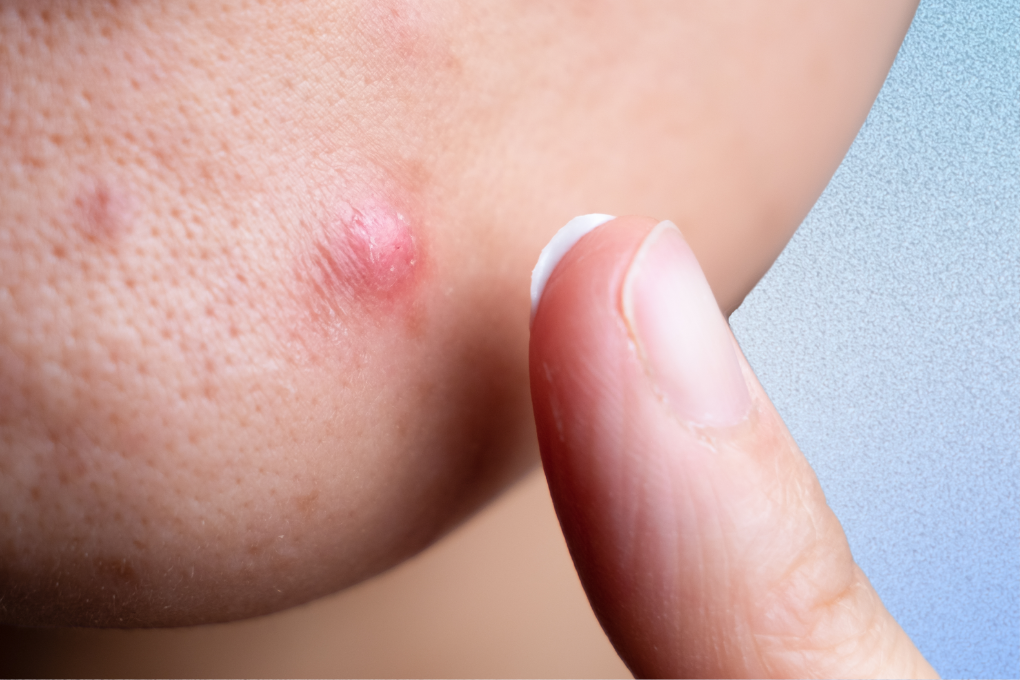Using a product that smells like a chlorinated swimming pool on your skin might sound blasphemous when you’ve been carefully curating your gentle skincare routine.
But hypochlorous acid, which is a component of bleach, is surprisingly gentle, and is an antimicrobial and anti-inflammatory powerhouse—traits you might recognize as ideal for acne-prone skin.
What is Hypochlorous Acid?
So, what is hypochlorous acid? Hypochlorous acid is a weak acid that is chemically related to bleach (sodium hypochlorite), but is less harsh and non-corrosive. Hypochlorous acid and bleach have a similar smell and are in the same chlorine family, but hypochlorous acid is a neutral pH while bleach is alkaline.
In essence, hypochlorous acid is a gentle, yet tough-on-germs, kind of acid. Hypochlorous acid can form when chlorine dissolves in water and it destroys microorganisms (including bacteria, viruses, and fungi) by oxidizing their cells. It is already present in our bodies because it is produced by our white blood cells as a part of our immune response to help kill pathogens.
Hypochlorous acid was discovered over 150 years ago, but its commercial use was limited because it was challenging to stabilize. Skin products with hypochlorous acid have become more common lately due to recent advancements in stabilization techniques that have made it possible to produce and store hypochlorous acid effectively, making it more available and affordable.
Hypochlorous acid gained in popularity during the COVID-19 pandemic as an effective disinfectant due to its ability to kill a wide range of pathogens, including viruses, without being harmful to humans or the environment.
The best part? It’s super gentle. That means even if your skin is sensitive to harsher acne products, hypochlorous acid can be gentle yet effective option at the right concentration.
Best Hypochlorous Acid Spray for Face
Hypochlorous acid often comes in a convenient spray bottle making them easy to use after you wash your face or on-the-go after working out or while wearing a mask to help reduce bacteria on your face. Like any liquid on the skin it can contribute to transepidermal water loss as it dries, so make sure you are using a moisturizer to keep your skin hydrated.
Hypochlorous acid sprays can also be used to sanitize your phone, makeup brushes and sponges, masks, and other items that come into contact with your face. Here are some of the best hypochlorous acid sprays for your face:
SkinSmart Hypochlorous Acid Facial Cleanser for Acne Spray Bottle
Prequel Skin Universal Skin Solution Hypochlorous Acid Dermal Spray
BRIOTECH Pure Hypochlorous Acid Spray Topical Body and Facial Mist
Tower 28 SOS Daily Rescue Hypochlorous Acid Facial Spray
How to Use Hypochlorous Acid for Acne
It’s always good to have another option in our arsenal against breakouts. While it is generally considered safe, make sure to check with your healthcare provider if you’re pregnant or breastfeeding. Hypochlorous acid is gaining recognition in the skincare world, particularly for its benefits in treating acne, due to several key properties:
Antimicrobial Action
The primary bacteria involved in acne is Cutibacterium acnes (C. acnes), which thrives in the oily environment of hair follicles and can inflame your skin. One of the primary reasons hypochlorous acid is effective against acne is its strong antimicrobial properties. Like benzoyl peroxide, hypochlorous acid acts as an oxidizing agent. This means it can disrupt the bacteria’s cell walls and internal structures, effectively neutralizing these acne-causing bacteria.
By reducing the bacterial load on the skin, hypochlorous acid can help in reducing inflammatory acne outbreaks. And unlike some antibiotics used for acne treatment, there is a lower risk of bacteria developing resistance to hypochlorous acid.
Anti-Inflammatory Effects
In addition to its antimicrobial action, hypochlorous acid possesses anti-inflammatory properties. Pimples can often become inflamed, which can lead to redness, swelling, and discomfort. By reducing inflammation, hypochlorous acid can soothe some of these symptoms and reduce the severity of your acne.
Non-Irritating and Gentle
What’s really great about hypochlorous acid is how gentle it is, which is perfect if your skin is on the sensitive side. Harsher acne treatments can be irritating to the skin, potentially exacerbating acne symptoms, damaging your skin barrier, or causing additional discomfort.
Hypochlorous acid, by contrast, is known for being exceptionally gentle and non-irritating. This makes it an excellent option for anyone with sensitive skin or who has had adverse reactions to more aggressive acne treatments.
Ease of Use
Because of its gentle nature, hypochlorous acid can be used regularly as part of a daily skincare routine. This consistent use can help in managing acne more effectively, preventing the growth of bacteria, and reducing inflammation over time.
Safety Profile
Hypochlorous acid is a naturally occurring substance in the human body, produced by white blood cells as part of the immune response. This means it has a high safety profile, which is particularly important for a condition like acne that often requires ongoing treatment through different life stages.
Hypochlorous acid is safe for regular use, and can be part of a daily skincare routine, which is great for ongoing acne management.
Hypochlorous Acid for Skin
Hypochlorous acid is versatile and can be used for various skin concerns, primarily due to its effectiveness as a disinfectant and its relative safety compared to stronger chemicals. It’s becoming more widely available and there are many ways it can be used on the skin beyond acne care:
- Sanitization: Because it is effective against a broad spectrum of microorganisms, including bacteria, viruses, and fungi, hypochlorous acid can be used to disinfect hands and items that regularly come in contact with the skin.
- Body Odor: Body odor is primarily caused by the bacteria that live on the skin’s surface. Hypochlorous acid’s strong antimicrobial properties can effectively kill or inhibit the bacteria responsible for body odor.
- Eczema: The skin barrier is often compromised in eczema (atopic dermatitis), making the skin more prone to dryness and irritation and more susceptible to infections. By reducing inflammation and bacterial load, hypochlorous acid can create a better environment for the skin barrier to repair and strengthen.
- Wound Care: Due to its non-irritating properties, hypochlorous acid is used in wound care and to treat infections. It is effective in killing bacteria without harming human tissue, making it a valuable tool in wound management and healing.
While hypochlorous acid is effective and generally safe, it is important to use appropriate concentrations for different conditions to ensure efficacy and safety.
So, there you have it—whether you’re using it as a quick spray after the gym or as a secret weapon in your daily routine, hypochlorous acid comes through with its antimicrobial and anti-inflammatory superpowers. The best hypochlorous acid spray for your face can be a solid pick in your skincare line-up that knows how to handle a crisis without breaking a sweat.





